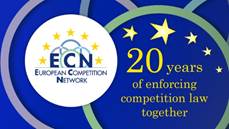Following the Staff Discussion Paper (see here) of the General Directorate of Competition on Competition Law and Sustainability which was published on the 16th of September 2020 and the successful tele-conference (see the relevant video) which took place on the 28th of September 2020 with Her Excellency the President of the Hellenic Republic, Ms K. Sakellaropoulou giving the welcoming speech (see press release), the Hellenic Competition Commission in collaboration with the Netherland Authority for Consumers and Markets (ACM) jointly commissioned to outstanding experts the drafting of a technical report (see the full document here) on sustainability and competition.
Among the conclusions of the Staff Discussion Paper was the need for the Hellenic Competition Commission (HCC) to facilitate the transition to a Green economy and support innovation, taking into account possible externalities from generation to generation through the use of new tools and approaches, in order to understand consumer behavior. This process may be facilitated with the development of a competition law sustainability 'sandbox'[1] in order, for the industry to experiment with new business formats that aim to realise more quickly and efficiently sustainability goals, and which involve cooperation between competing undertakings or even more permanent changes in market structure in order to be accomplished.
Having these proposals in mind and following the initiative of ACM in announcing the adoption of guidelines on sustainability and competition, which provide guidance with respect to the application of competition law to sustainability agreements among competitors, under article 101 par. 1 and 3 of TFEU, the two authorities invited Professors Anastasios Xepapadeas, Eftihios Sartzetakis and Roman Inderst, to compile a technical report drawing on concepts and tools, mainly from environmental economics, to answer the question of what forms of quantitative assessment could be applied to take account of the broader social benefits in a green circular economy, in competitive assessments. The technical report focuses on the assessment of a hypothetical agreement between competitors with the aim to promote environmentally friendly practices through the analysis of a) methods for environmental valuation using case-specific data, b) valuation methods for estimating and aggregating case-specific impact, c) valuation using data from existing studies and databases and d) valuation derived from stated policy objectives.
It should be noted that HCC with ACM are currently co-leaders to the initiative undertaken by the Horizontals and Abuse Working Group of the European Competition Network for the coordination of a group of EC member-countries, including France, Germany, Finland, Hungary, Luxembourg and Ireland in order to draft a document with the views of all participants on a series of issues for the integration of the notion of sustainability in competition law and economics.
The Technical Report on Sustainability and Competition is also published in view of the initiative undertaken by the European Competition Commission in the framework of the Green Deal, with the organization of a Conference during February 2021, following a public consultation during which 189 stakeholders, the HCC included, provided their contributions.
Given the interest of the DG of the European Competition Commission for this technical report, the HCC and the ACM expect that this will trigger initiatives for the adoption of innovative for competition law methodological tools, for the promotion of agreements among competitors for the realization of environmental goals and the parallel strengthening of competition.
The HCC is planning to take up more initiatives in the future for the promotion of sustainability issues compatible with competition law, through the cooperation with other National Competition Authorities of the European Union for the development of a “sandbox”.
[1] A sandbox is defined as ‘a safe space where both regulated and unregulated firms can experiment with innovative products, services, business models and delivery mechanisms without immediately incurring all the normal regulatory consequences of engaging in such activity’: Financial Conduct Authority, “Regulatory Sandbox”, (2015) Research Paper.


